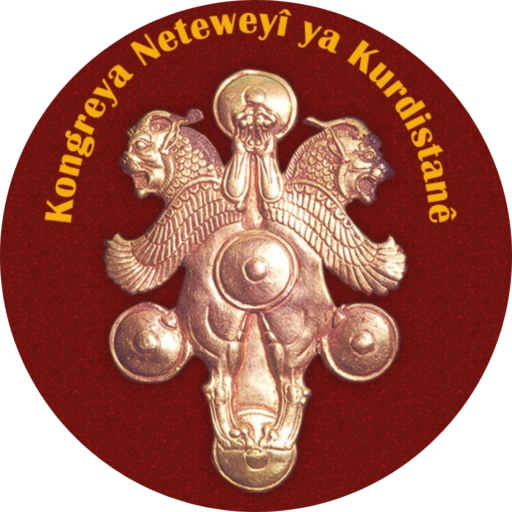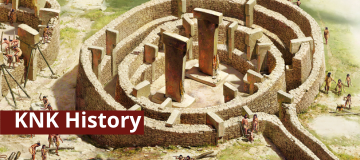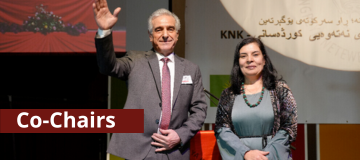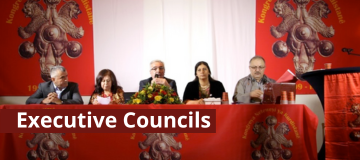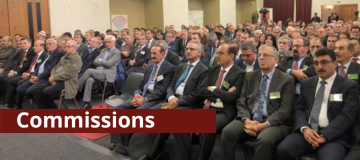The Kurds
The Kurds are, together with the Arabs, Persians, and Armenians, one of the most ancient peoples of the Middle East. The country they inhabit is called Kurdistan. The Kurds have their own language, called Kurdish. Kurdish is part of the Indo-European language family. Like Persian, Afghan, and Beluchi, it is one of the Iranian languages. The Kurdish language is unrelated to Arabic or Turkish. Perceived as a separatist threat and without any formal representation on the world stage, the Kurdish people have been subjected to genocide, crimes against humanity and a host of other human rights abuses for more than a hundred years.
Many of the Kurds’ problems emerged in the aftermath of the First World War. Following the collapse of the Ottoman Empire, the regional powers signed a peace treaty – the Treaty of Sèvres – envisaging, among other provisions the future establishment of an independent Kurdish state. However, following the Turkish war of independence under Mustafa Kemal Atatürk and his followers, the Treaty of Lausanne was enacted instead. That treaty sidelined the Kurdish question altogether and finalised the division of Kurdistan between modern-day Turkey, Iraq, Iran and Syria.
Kurdish culture originates from the time of the migration of Indo-European tribes some 4,000 years ago to the Zagros Mountains, today the heart of the Kurdish region. Although no formal censuses exist, there are today an estimated 40 million Kurds. Despite them being divided among Turkey, Iran, Syria and Iraq and their large number of different languages and religions, Kurds share a strong overarching sense of common identity.
The geopolitical importance of the region combined with significant oil and water resources there always appears to have hindered, not helped, the Kurds. The issues faced by Kurds in each country vary in nature and intensity, but there are undeniably common threads. Almost everywhere, Kurds face the suspicion of harbouring separatist sympathies simply by virtue of their ethnic origin. Ethnic cleansing, e.g. ‘Arabisation’ and ‘Turkification’ policies, have been implemented, accompanied by mass killings, displacement and prohibitions on Kurdish culture and language. Over the last decades, Kurdistan has been the scene of genocide, crimes against humanity, extra-judicial killings, torture, mass displacement and censorship, among other abuses of international law.
Today, millions of Kurds live as internally displaced persons (IDPs) within different states – physically prevented from returning to their home land and livelihoods as a result of armed conflicts. Millions more live as migrants, refugees and asylum seekers across the world.
The Kurds
Iran
There are around 10 million Kurds in Iran. Discrimination against the mainly Sunni Kurds in Shi’a Iran is more complex than elsewhere because of the added religious dimension and because of the fact that Kurds have often been more actively involved in resistance against the regime than other groups in the country. The state’s motives for the repression of the Kurds are, therefore, based on ‘security concerns’ as much as other factors.
With the world’s attention with regards to Iran focused on the nuclear issue, Iranian security forces have stepped up their attempts to ensure the ‘integrity of the republic’ by policing in an ever-harsher manner. Incidences of executions, extrajudicial killings and ‘disappearances’ have increased while human rights defenders and NGOs have been subject to ongoing harassment.
Iraq
Around 5.5 million Kurds today live in Iraq. The fall from power of Saddam Hussein in Iraq in 2003 presented a new opportunity for the Kurds of the country to tackle the discrimination they had faced in the past, although Saddam’s flawed trial and subsequent execution prevented him from ever facing justice for the 182,000 Kurds killed in the Anfal operations in 1988. True justice for the Anfal victims requires proper care and redress for the thousands of families who continue to suffer from the psychological, social, economic and political effects of the genocidal Anfal campaign.
Politically, the two main Kurdish parties united to form a single Kurdistan Regional Government (KRG) – a significant step towards stability and progress. However, continuing insurgency and violence continue to threaten this success, with particularly fierce disputes over the future status of Kirkuk prompting threats of military intervention from Turkey. Ultimately, such tensions divert attention and resources into security and away from human rights and civil issues.
Syria
Human rights abuses against Syria’s million-strong Kurdish population were a constant reality until the turmoil of 2011 allowed the Kurds to achieve in practice a certain status of autonomy. The refusal of the Syrian state to reinstate citizenship to 360,000 Kurds who had been stripped of it in 1962 was among the most pressing problems until what is generally referred to as the ‘Rojava Revolution’ in 2011. The Syrian government had used a state of emergency for over 40 years to enforce a harsh security regime on the Kurdish population. Detention without trial, torture, and curbs on freedom of expression were particularly serious, with signatories of documents calling for greater rights arrested and imprisoned.
Today, the Kurds in Syria have established the Autonomous Administration of North and East Syria (AANES) together with the Arab, Armenian, Assyrian, Turkmen and Circassian peoples in the area. Based on values such as democracy, ecology and women’s freedom, the AANES seeks to build a practical example for the democratization and decentralization of Syria, while protecting the unity of the country and its diverse peoples. Yet, ongoing heavy attacks by Turkey have so far not allowed for stability and peace to reign in the area.
Turkey
Turkey continues to systematically abuse the human rights of its estimated 25 million-strong Kurdish population. Violence and discrimination are regularly used against Kurds despite hopes that the EU accession process might encourage Turkey to improve their situation.
Major abuses by Turkey include torture and the employment of armed forces against civilians. The state generally refuses to account for fatalities and injuries it causes. Freedom of expression has been particularly targeted, with many prosecutions brought against Kurds expressing peaceful opinions. Language rights are also restricted, with technical requirements in the curriculum being introduced to make the task of teaching in Kurdish more difficult even in private schools where it is officially allowed.
More worrying are the conditions set out in Turkish anti-terror legislation such as the wide definition of ‘terrorism’, the permission given to officers to use weapons ‘without hesitation’ and the decision to allow suspects to be held ‘incommunicado’ for 24 hours. These regulations give the Turkish state wide scope to arrest, prosecute or shoot ‘undesirables’ and still remain within the legal framework.
Kurds in Caucasus
There are an estimated 75,000 Kurds (1.8% of the population) in the Republic of Armenia. Whilst the capital, Yerevan, has been considered a centre for Kurdish culture and arts, conflict with neighbouring Azerbaijan has seen the expulsion of Muslim Kurds and abuses against the small indigenous Kurdish population caught up in the fighting over the disputed enclave of Nagorno-Karabakh.
An estimated 200,000 Kurds (2.8% of the population) live in the Republic of Azerbaijan. Azerbaijan’s treatment of its Kurdish population is largely affected by its above-mentioned conflict over the disputed enclave of Nagorno-Karabakh. There are also an estimated 40,000 Kurds (0.9% of the population) in the Republic of Georgia.
Kurds in Europe
The formation of a significant Kurdish presence in Europe is a rather recent phenomenon. In the 1960s, Kurds from Turkey began arriving in Germany. the Benelux countries, Austria, Switzerland and France as immigrant workers based on inter-governmental agreements regarding immigrant labor. Following the Islamic Revolution in Iran in 1979, the military coup d’état in Turkey in 1980 and the Iraqi regimes murderous Anfal campaign against the Kurds, successive waves of Kurdish political refugees arrived in Western Europe and, to a lesser extent, North America. The campaign of the forced evacuation and destruction of Kurdish villages, launched in 1992 by the Turkish state, coupled with a policy of political assassination of leading Kurdish politicians, journalists, lawyers and academics by Turkish ‘death squads’ and paramilitary forces, followed by the inter-Kurdish clashes in Iraqi Kurdistan after 1994, further increased the Kurdish exodus to Europe. Unfortunately, no official census of the Kurdish population in Europe has so far been carried out, but it is generally estimated that between one and two million Kurds live in Europe today.
